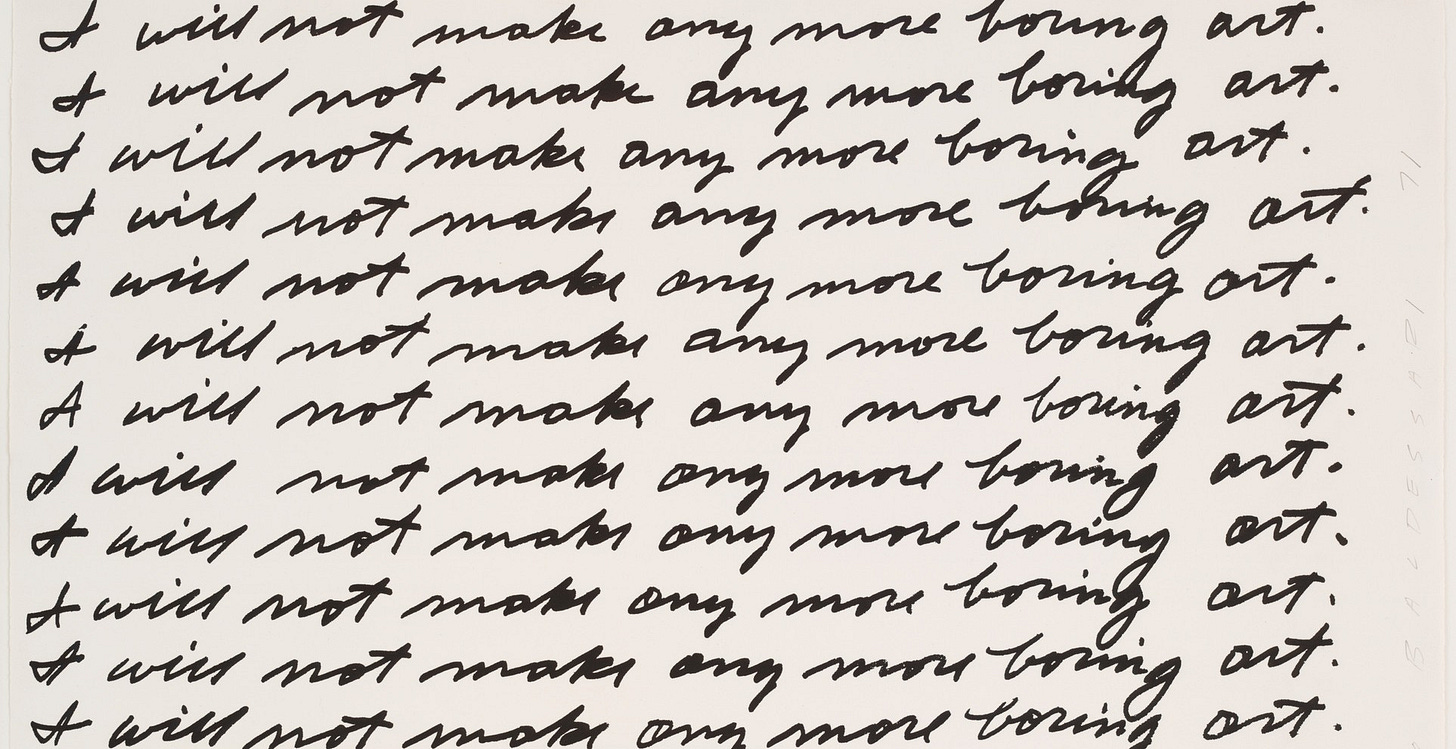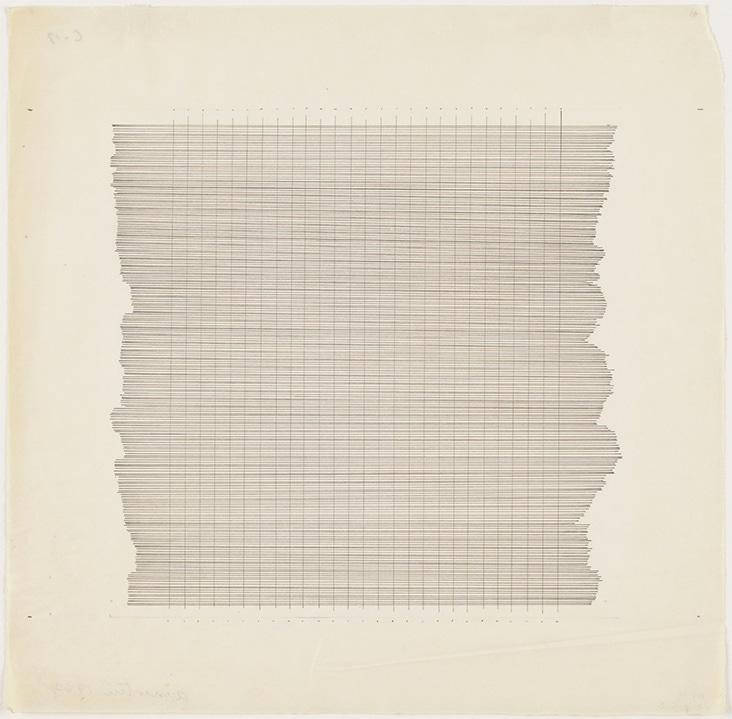I Can Only Think When I Run
Ok, obviously that’s not true, but what I mean is that often, it’s the only time my thoughts stop clinging to each other like velcro. The motion shakes them loose. Which is a weird thing to write as I sit here, typing this, becoming increasingly suspicious of whatever it is exactly that I'm talking about.
There are days where it feels like I’ve spent six hours thinking and ended up nowhere. Not even a new idea. Just more refined loops. Like polishing a scratched mirror over and over again.
I don’t remember when it started. College? Maybe earlier? It got worse when work became a screen, and worse yet when thinking became content. When I could lose a whole afternoon to diagnosing my own moods, and worse again when analysis became a way to generate monetary value.
When given a name like reflection, this process sounds noble, but the results are often indistinguishable from stagnation. At a certain point it stops being thinking and becomes posing questions you already know the answers to just to watch yourself answer them again.
“Critical thinking” is a phrase everyone loves to repeat. School loves it, work loves it, it's all over the internet, and being demanded of everyone in response to disagreement. But what is it, really? In practice, it often means compulsive pattern recognition. Reverse-engineering the emotional causality of a passing look. Or finding metaphors for fatigue, optimizing your emotions until you don’t recognize them anymore.
At some point, the whole world turns into something to be analyzed. Everything becomes a system with a hidden pattern you should be able to crack, and that pressure to crack it then becomes its own form of paralysis.
Sometimes it works, and sometimes it makes things worse.
It was easy to slide towards the conclusion that the problem was that I wasn’t analyzing hard enough. That if I just went one level deeper, I’d figure out why I couldn’t finish anything. But I was stuck because I’d been in the same mode too long. Like overusing one muscle until it locks, a tool becoming a trap.
Then there’s the other trap, which is imagining the minds of others until you forget your own. I used to think this was generosity or something like emotional intelligence. It can feel really good to try on other people’s feelings like outfits. Or to understand them, preempt their reactions and make the simulation more accurate. But there is a point at which simulation becomes disassociation. You run out of processor. You forget what you actually feel. Everything becomes inference and everything is outsourced.
I once asked myself what I wanted and couldn’t answer. I could only tell you what I thought someone else might want me to want.
Empathy is a beautiful mode. But too much and you're vapor. Fog. Nothing. You stop living and start approximating and your internal reference points vanish.
One night many years ago I sat on the floor and tried to think my way out of a bout of anxiety. I opened my notes app and typed a list of possible causes, then I wrote rebuttals to the causes then I tried to logic my way through the rebuttals.
My stomach hurt. I hadn’t eaten. I drank water. Nothing changed. I closed the laptop. I walked around the block. That helped, because thought needs more than language to survive. Sometimes it needs to flail or go silent, and sometimes it needs to jolt sideways into something ugly, like crying over an insurance commercial or screaming into a t-shirt. Motion. Rhythm. A limbic break. Not elegant. Not legible. But real.
A different kind of knowing.
There are thoughts you can only have once you’re moving, because the body stops blocking them.
The gut has more serotonin receptors than the brain. The heart has neurons. Somewhere between enactivism and indigestion, there’s a kind of knowing you don’t get from sitting still. Varela called it embodied cognition, which is the notion that meaning isn’t just in the head, it’s enacted, felt, lived through sensorimotor loops. We don’t think about the world. We think with it. Through it. While breathing, sweating, shivering, twitching. The whole body participates in sense-making. Your vagus nerve routes emotional information like a subterranean switchboard.
Your body isn’t a mule for the brain. It doesn’t carry your insights from one room to another. It makes them, interprets and reroutes.
If you pay attention, you’ll find that the body is highly opinionated.
I walk to remember things. I stretch when I can’t figure out what I feel. I run when I don’t know what to say.
It helps, but only if I let it be what it is — A different way of knowing.
Beyond flow states and optimized performance there is metabolization. Meaning being digested and thoughts softening under blood pressure, moods resolving into breath.
A monk asked Master Yunmen, "What are the teachings of a whole lifetime?" Yunmen said, "An appropriate response."
That’s the whole thing. You’re not supposed to get it. You’re supposed to stop trying. Default mode interruption. Brain reboot. Thought defibrillator.
Zen koans mess with grammar to throw a wrench in your pace. They just want you to stop, stumble, maybe blink. That’s their role. A small and deliberate short-circuit in your loop.
Sometimes when I catch myself explaining something that doesn't need explanation, I imagine someone clapping once, very loudly, in the middle of the room.
Call it another weather report. Fog rolling in, no system in place.
Today, the mind is cloudy and the body is trying to translate.
It would be a mistake to believe that any one mode is the real one. They all lie sometimes. They all reveal different parts of the terrain.
Thinking happens somewhere. Then it doesn’t. Then it loops back, shaped slightly by where you’ve been.
Then leave. Then return to, slightly different. Like a trail. Like a memory or like a sentence you almost remember.
When nothing makes sense, don’t double down on the thoughts.
Move, then listen.
Sometimes the thought isn’t ready to be thought until the body has cleared a space for it.
Move, then listen.







